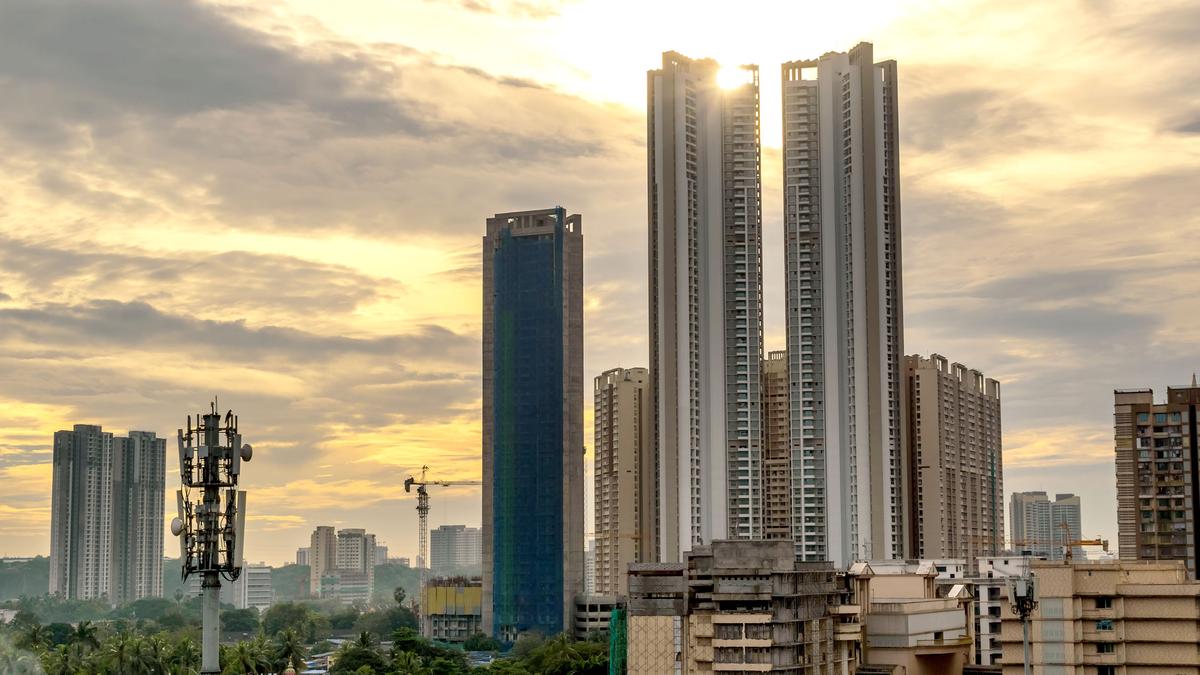
Flexible office spaces reshape post-COVID work environments
The Hindu
COVID-19 has transformed India's office space landscape, leading to a surge in flexible office arrangements and hybrid work models.
In the wake of the COVID-19 pandemic, the office space landscape in India has seen a significant transformation. The shift has impacted how offices operate, sparked innovative ideas in modern office space designs, and pushed organisations to rethink traditional office setups and shift to more agile and dynamic work environments.
Among various changes, a key trend post-COVID has been the surge in flexible office arrangements, with larger office spaces being fragmented into smaller spaces. The trend has emerged as a mainstay of modern work culture, leading to diverse working styles and has introduced flexibility into the office real estate market.
The rise of hybrid work models, capital intelligence, demand for flexibility in leases, and a shift in work culture have all fuelled the transition towards flexible spaces. From start-ups to small, medium-sized enterprises (SMEs) and large corporations, the demand for flexible strategies has grown.
According to a recent report by the CBRE India Research on India’s Office & Flex Outlook 2024, India remains the fastest-growing flexible office market in the world with a total stock of about 68 million sq. ft. The report also shows that Tier-II cities are emerging as the next frontier for flexible spaces as these cities strive to meet the evolving needs of business.
The report further highlights the active integration of flexible spaces into office portfolios under the ‘Core+Flex’ strategies, with managed offices and enterprise co-working requirements witnessing particularly high demand. (Core+Flex’ strategy allows occupiers to be more financially efficient, while still providing employees with a consistent experience and company culture along with the flexibility to work from different locations)
The report, which surveyed the top nine cities in India—Delhi-NCR, Mumbai, Bangalore, Chennai, Hyderabad, Pune, Kolkata, Kochi, and Ahmedabad—shows a consistent increase in the leasing demand from flexible operators and the share of flexible spaces in overall leasing between 2018 and 2023, albeit with minor dips in 2020 and 2021. It states that more than 2,00,000 workstations were leased by occupier clients in flexible spaces in the year 2023 and flexible space stock stands near 64 million sq. ft., with more than half of the stock in Bengaluru and Delhi-NCR in 2023, with a potential to reach 80 million sq. ft. in 2024.
Sanjay Chugh, City Head and Director of Anarock Property Consultants Pvt. Ltd., says that an important element fuelling the demand for flexible office spaces in India post-COVID is the employees’ growing frustration with worsening traffic congestion.

The girl, who was admitted to Aster CMI Hospital with alarming breathlessness and significant pallor, was diagnosed with Wegener’s Granulomatosis (now known as Granulomatosis with Polyangiitis or GPA), a rare autoimmune condition that causes spontaneous bleeding in the lungs, leading to acute respiratory failure.

ACB files case against IPS officer N. Sanjay in Andhra Pradesh. The official is accused of manipulating the tender processes for awarding contract for development and maintenance of AGNI-NOC portal, and conducting awareness meetings for SC/STs. It is alleged that the total value of properties stolen, or involved in the case is estimated at ₹1,75,86,600.









